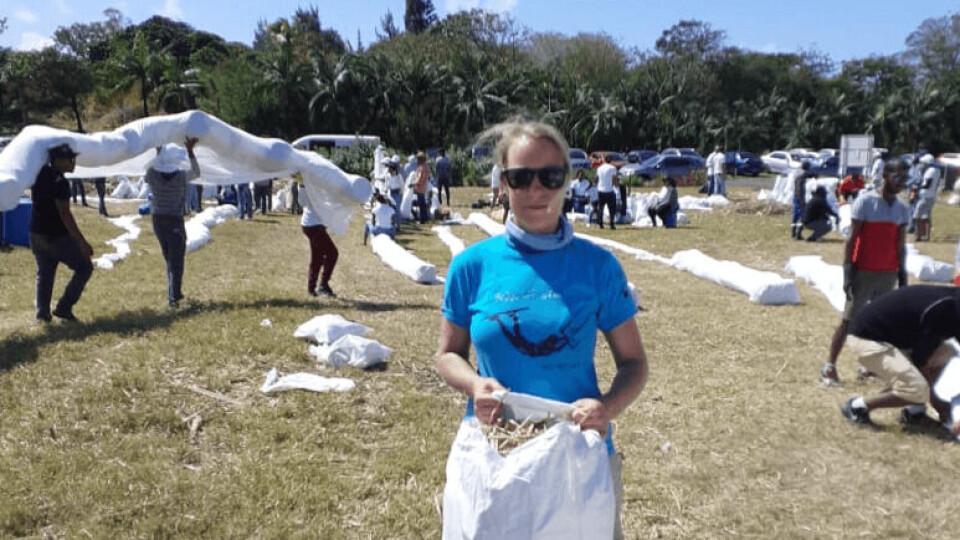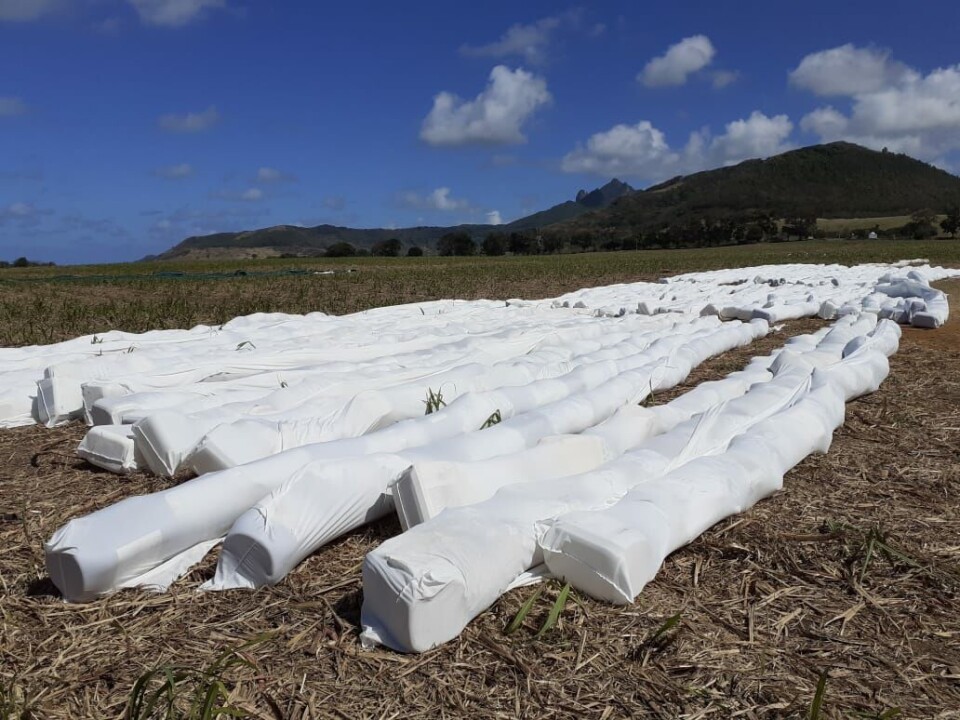
SAMS researcher aids Mauritius oil spill clean-up
A scientist working to recycle nitrogen from industries like aquaculture and agriculture has played a part in mitigating damage from an oil spill on the island of Mauritius in the Indian Ocean, where she is based.
Dr Georgina Robinson, of the Scottish Association for Marine Science (SAMS), sought help from the British High Commissioner Keith Allan and the UK Oil Spill Association and is currently liaising with biotech companies to source enzyme and microbial-based products that would accelerate the degradation of the oil and speed up the recovery of impacted coastal zones.
Robinson has also joined fellow islanders in collecting sugar cane straw to help fill kilometres of booms to halt the spread of the oil.

Disastrous for environment
The researcher said her own experimental work had been unaffected by the oil spill, although she remained concerned about the potential effect on a nearby fish farm related to her research.
The oil has spilled from the Japanese-registered MV Wakashio. The freighter collided with a coral reef off Mauritius on July 25 but only started breaking up 13 days later, releasing approximately 1,000 tonnes of oil and diesel into the sea, close to two protected UNESCO sites.
Robinson said: “Mauritius is known for its beauty and incredible biodiversity, which attracts a lot of tourism, so this has been disastrous for the environment and for the island economy.
“The grounding of the Wakashio occurred in one of the sensitive marine areas in Mauritius. The nature reserve of Ile aux Aigrettes, a protected island that provides a sanctuary for some of Mauritius’ rarest species of tree, birds and reptiles, was in direct line of the oil that started to flow from the ship on August 6.
Amazing response
“The mangroves and coastal zone along the south-east of Mauritius, including RAMSAR wetlands (under protection due to international and ecological significance) have been impacted. The environmental damages and impact on coastal livelihoods will be felt for years to come.
“There has been a huge response from NGOs, businesses and volunteers and I joined one of four boom production sites on the island. I was filling sacks with sugar cane straw that were packed into huge socks to soak up the oil with plastic drums and bottles for floatation. We were using anything that would soak up the oil. People were cutting their hair and donating that.
“The community response was amazing to see. Everyone just dropped what they were doing and came together, helping at a production site, or Crowdfunding for equipment. Mauritius is a real melting pot of nationalities and religions but came together as one nation in the face of this disaster.”
Marine worms
Robinson was last year awarded a prestigious fellowship for her work to address global food shortage by recycling waste from food production industries.
The UK Research and Innovation (UKRI) Future Leaders Fellowship will allow her to overhaul the current ‘nitrogen cycle’ process by which excess nitrogen in the form of animal waste from industries like agriculture and aquaculture is turned back into an inert gas and released into the atmosphere.
Instead, Robinson proposes a system that will recycle this waste by using it to feed sea cucumbers and marine worms – so-called deposit feeders – which can then be farmed as a high-protein food source for humans and livestock and may even be used to generate electricity.
Great British Prawns
Robinson has formed a commercial partnership with Great British Prawns (GBP), based at Balfron in Stirlingshire, but is also open to collaboration with other commercial partners, which might include salmon hatcheries or smolt nurseries.
Robinson hopes to save GBP the cost of on-site sludge removal and remediation from its recirculating aquaculture aquaculture system (RAS). She also intends to provide GBP with an extra revenue stream by growing polychaete worms – so-called deposit feeders – on the prawn farm sludge.




















































